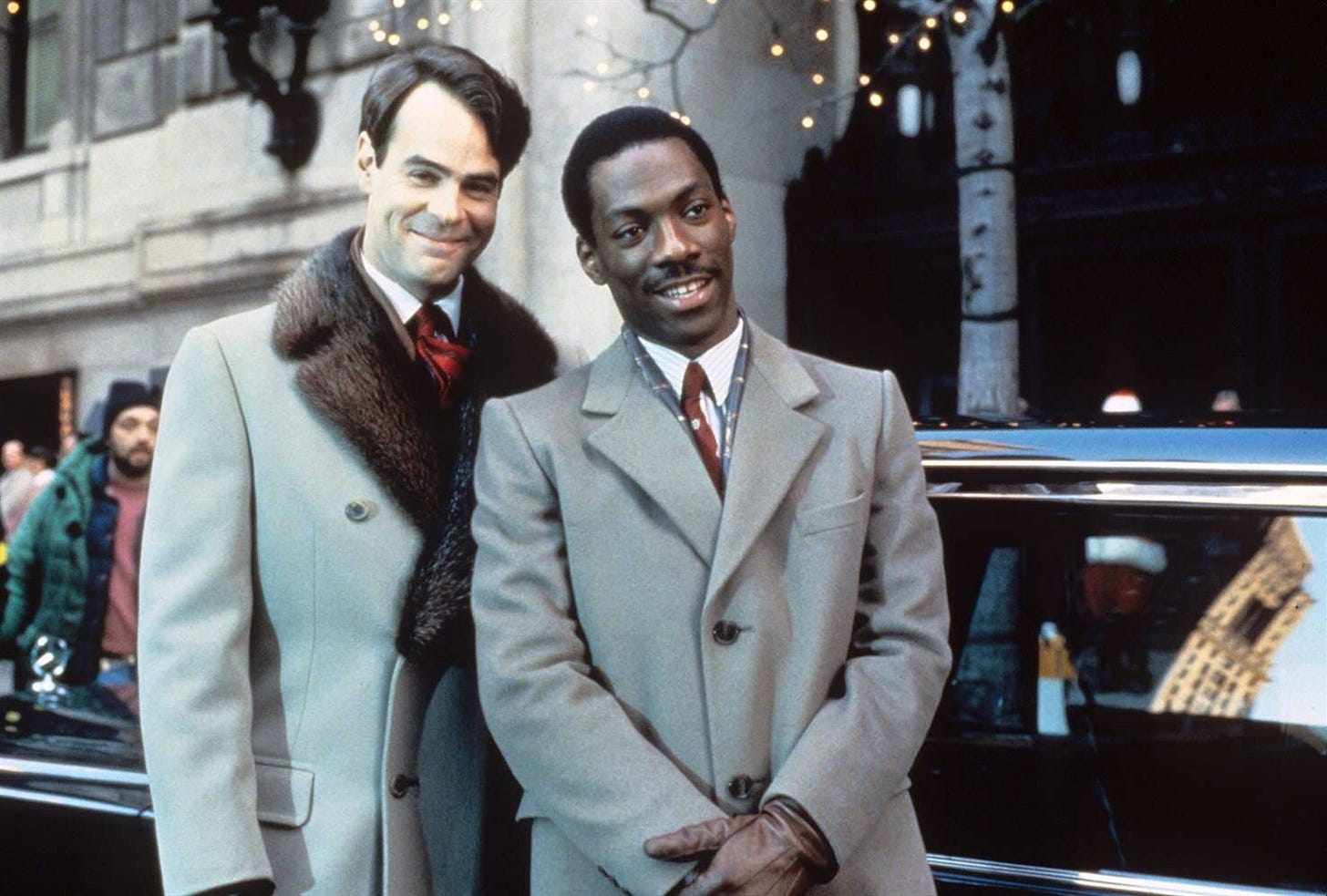Tales from the jar side: Video Is Everywhere, Sponsors rather than Mentors, and Looking Good
Is it better to look good or to be good? Probably.
Welcome to Tales from the jar side, the Kousen IT newsletter, for the week of May 24 - 31, 2020. This week I taught a course called What’s New In Java on the O’Reilly Learning Platform and an NFJS Virtual Workshop called Functional Modern Java. I also spent a fair amount of time on my upcoming Managing Your Manager book.
Before I get to any of that, let me comment very briefly on the current situation in this country, as represented by two extremes, one bad and one good: the death of George Floyd, which sparked both nationwide protests and violence from the police:

The most important image of 2020 so far
The other was the launch of the SpaceX Dragon mission, which took two astronauts to the International Space Station.

That was seriously cool
As I write this newsletter, the political situation is still fluid and evolving rapidly, so all I’ll say is that the ubiquity of video really has changed the world. It’s the nature of politicians to redefine reality to suit their goals, but with handheld cameras everywhere that’s not so easy. It generally takes the media a few days to define a narrative for news events and unite in their interpretation, but you can’t simply blame violent protesters when thousands of video clips are readily available showing cops driving into crowds, attacking bystanders, firing “non-lethal” rounds, and deliberately targeting journalists. You really have to go out of your way to deny all that is happening. Some truly awful people will try, but it won’t be easy this time.
And on the space side, it’s really cool to be able to watch the NASA or SpaceX feeds from the ISS and Dragon capsule as it docked with the space station. As someone on Twitter said, astronauts Bob and Doug sure picked the right time to leave the planet for a few months.
We’re in the middle of something big, and I don’t know what it will look like in a few days or weeks. All I know for sure is that our Blithering Idiot In Chief will find a way to make everything worse, because that’s what he does, and that’s what he wants.
Still, life goes on while I wait for my Twitter feed to refresh, so I’ll discuss what happened in my professional life this week.
Sponsors, Not Mentors
This week I’ve been working on two chapters of my Managing Your Manager book. One I mentioned last week is currently called Miscellaneous. It holds sections that are not big enough to warrant their own chapter but need to be included somewhere. It currently includes sections on working for a micro-manager, the challenges of a flat organization, and remote work. I’m also planning to add a section called “The Tragedy of Human Resources,” which on a first pass came out a bit harsh.
The idea is to remind employees that HR doesn’t actually work for you. It’s a good resource for information. They have a role to play in keeping the company out of legal problems, especially around hiring and layoffs. But if you ever wind up in a conflict with a manager, don’t expect HR to represent your interests. Their job is to make the problem go away, with as little disruption and bad publicity as possible. There are good people in many HR departments, and they will sympathize and try to help, but the real job of HR is to protect the company.
That’s a difficult lesson for many employees to learn. Hopefully you’ll never be in that situation. And hey, maybe I’m wrong. But every time I’ve mentioned this in one of my training classes, I’m drowned out by a chorus of “yeah, I wish I’d known that earlier.” I’m going to include something along those lines, but I have to find a way to say that without coming across as too cynical or depressing.
That leads me to the other new chapter, with the working title Special Issues for Women and Underrepresented Minorities. Writing about that this week was either really well timed or really horribly timed, depending on your point of view. As an older white male, I understand that when issues of racism or misogyny come up, the best thing for me to do is be quiet (or, more colloquially, STFU), but I feel it would be negligent to not at least address those topics in my book and comment on how the advice I give in the rest of it might be modified.
I’m planning to get feedback from a wide range of people for that, but as a start I want to mention an awesome video I watched this week: Career Advice for Programmers by the inimitable Trisha Gee.
Trisha’s Wonder Woman t-shirt is awesome, appropriate, and appropriately awesome.
It’s a recording of a keynote address she gave at a conference about a year ago, but the information in it is timeless. She gave many excellent recommendations, but one in particular struck me — the difference between a mentor and a sponsor.
I’m expanding what she said and paraphrasing what I’ve already added to my book, so any errors here are mine, but let me summarize. A mentor is a more senior person who gives you advice, both about your career and the organization as a whole. As such, that person should have experience that is compatible with your own.
A sponsor, on the other hand, praises you to the rest of the organization. That person is your ally who tells other managers (especially ones in a position to promote you) how wonderful you are. Hopefully your own manager is also a sponsor, but words of praise coming from a disinterested third party mean a lot. For that person, you want someone who is most likely to be heard and respected, and in most organizations, that’s usually an older white male.
Mentors operate internally, toward you. Sponsors work externally, toward the rest of the company.
I have to admit when I heard that section of Trisha’s video, I had to stop immediately and think it over. It was one of those “yes, of course!” concepts that I’d never put into words but seemed so obvious in retrospect. I’m definitely stealing that for the book, and I might even file off the serial numbers first.
(Actually, I sent Trisha an email and told her how impressed I was, and she kindly agreed to be a reviewer when the book is ready, so it’s all good.)
Looking Good
(I really wanted to use a “Looking good, Lewis! Feeling good, Billy Ray!” joke from Trading Places here, but couldn’t quite manage it. I decided to add the picture anyway.)

Wow, 1983 was a long time ago
Trisha also spent some time in the video talking about how you have to look good on the job, which she meant presenting yourself in a way that garners respect. That reminded me of a wry story I used to tell about MIT and Princeton.
I was an undergrad at MIT, which is still one of the finest technical schools in the world. If you went by how the place or the faculty looked, however, you got the impression that looks meant nothing as long as you were technically excellent. Sure I occasionally had a professor with some style, but more of them went with the jeans, t-shirt, and sandals approach. You also got a lot of the Einstein wild hair types, again with the implicit message that looks didn’t matter. Even the main buildings on campus are composed of many individual buildings joined together, with wildly varying architectures and styles.

Princeton, on the other hand, was completely different. I spent four years there as a grad student, and the contrast was dramatic. Everything looked gorgeous, right down to the black squirrels, which were supposedly imported from the UK to make the campus appear more like a European one. An officemate of mine said that Princeton looked more like Cambridge than Cambridge University did, or rather that it looked like Cambridge did 100 years ago. The message of Princeton was that you had to look good, whether you were good or not.

You need a castle in central New Jersey to defend against all those barbarian hordes
If you go to both, the message is either that you needed to both look good and be good, or that neither matters. You’ve probably seen the movie A Beautiful Mind with Russell Crowe as mathematician John Nash, who attended both schools. So did I. Draw your own conclusions. :)
Btw, that movie is possibly the (director) Ron Howard-est of all Ron Howard movies.

After watching it, I read the book by Sylvia Nasar, and Nash was very different from the hero shown in the movie. Howard centers everything around a wonderful love story between Nash and his wife Alicia, played by Jennifer Connelly, who was brilliant, beautiful, and infinitely understanding. The reality is that Nash had a series of affairs, separated from his wife on more than one occasion, and even had a child with one of his mistresses. I suppose that’s not exactly the Nash equilibrium the director had in mind.
(Whoa, that’s my first Nash equilibrium joke ever, though I expect I could make a better one if I knew more about your sense of humor. Hah! That’s two!)
Functional Java
This week I also taught my What’s New In Java course, which discusses all the new features that have been added to Java since version 8. If you haven’t kept up, the short answer is that it’s worth learning about the streams, lambdas, and method references added in Java 8, and the rest you can pick up whenever you want. Even though they change major version numbers every six months now, the actually changes since Java 8 aren’t that dramatic. That’s an oversimplification, but not too bad if you just need to know what you need to know.
Those topics are of course the foundation of my Functional Modern Java workshop, where I get to discuss more advanced issues like deferred execution, parallel streams, closure composition, and more. I’m afraid I accidentally ran overtime in that course, but the students were nice about it.
On a somewhat related note, my paperback copy of 97 Things Every Java Programmer Should Know came this week, which was earlier than I expected. It’s a good browsing book, because each of the “things” is only a couple pages long. That includes my contribution, called Make Your Java Groovier. What really jumped out at me when I saw it was that the recipes were in alphabetical order. If I’d realized that, I would have change my title to something like “AAAA Groovier Java”. Oh well, too late now.
Finally, referring back to video being everywhere: I finally got a decent webcam. Do you know how hard it is to get a webcam these days? I had to go on eBay to find one. It’s a Logitech C920 HD Pro if you care about such things, and I think it looks pretty good (and I think it is pretty good). I’m trying to learn something about OBS, as well, to make my online classes better, but we’ll see. If nothing else, the software makes my laptop fan run constantly. Sigh.
Last week:
What’s New In Java, on the O’Reilly Learning Platform
Functional Modern Java, NFJS Virtual Workshop
Lots of writing on Managing Your Manager
Next week:
Spring and Spring Boot, on the O’Reilly Learning Platform
Spring MVC, ditto
More writing




